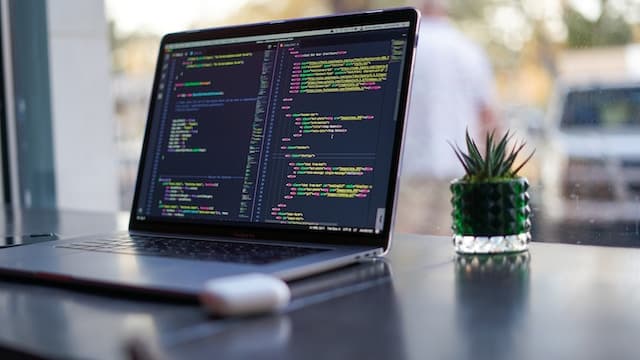Coding VS Programming?

Benedict Anthony
October 15th 2024
What is coding?

Coding is the process of converting logic and needs into computer-readable language. The primary goal is to write lines of code in a given language (such as Python, Java, or HTML) to complete a specific task or solve a specific problem.Coding is essential for creating software, websites, mobile apps, and various other applications. In essence, coding allows humans to communicate with computers and direct their operations to solve problems or create useful digital solutions.
What is programming?

Programming is the process of creating, developing, testing, and maintaining code that enables a computer or other device to carry out certain tasks or solve problems. It entails utilizing programming languages like Python, Java, or C++ to design sets of instructions, known as algorithms, that direct the computer through a sequence of tasks. Programming is a more general idea than coding. While coding refers to the act of writing code, programming involves the full process, which includes problem solving, planning, logic structuring, and ensuring that the code runs properly. It is used to create software programs, websites, platforms, and tools for usage in the digital world.
Coding vs. programming: Key differences
Coding and programming are closely related jobs that frequently overlap, but there are some significant differences as well.
Size and complexities.
Coding is the process of writing code in a programming language to instruct a computer to accomplish a specific task. In other words, Edward Kim, vice president of education and training at Code Ninjas, defines coding as a distinct task inside the area of programming that focuses on actually writing lines of code. In contrast, programming entails not just the creation of code but also the planning, design, testing, and maintenance of software. "Consider programming as a broader superset of activities during the lifecycle of developing software in order to implement a full solution to address specific or an array of challenges and problem sets or needs," Kim told reporters.
Software that are utilized:
Coders rely significantly on text editors like Sublime Text, Atom, and Visual Studio Code, which are popular for their simplicity, speed, and versatility. They can also be extended via plugins. You can also use code libraries like jQuery or React to make certain jobs easier. Frameworks like Angular,.NET, and Ruby on Rails are commonly used in programming because they give a more structured, standardized way to construct apps. Additionally, coding requires syntax-specific tools such as linters and compilers (for example, ESLint for JavaScript or PEP 8 for Python). To manage the software development lifecycle, programmers use extra project management and communication technologies such as Git or JIRA.
Which is more difficult to do?
The level of difficulty varies according on your talents and interests. Some people may find the logic and problem-solving parts of programming more difficult, whereas others may struggle with the syntax and technicalities of coding. Programming is widely regarded as encompassing more sophisticated and diverse duties than coding, which is only one component of programming. People frequently begin as coders before transitioning to programming. "Employers expect you to progress from a coder to a programmer, learn new skills, and take on more responsibilities," according to Graf. "That doesn't imply you have to pursue a vertical profession, however, he reiterated, companies do expect people in software engineering to constantly upskill"
Conclusion
Both coding and programming are fantastic job options. They are in high demand, have a significant earning potential, and provide prospects for advancement. However, while coding and programming are closely connected, they differ significantly in the context of software development. Coding is essential for producing software, but it is only one component of a larger picture. In contrast, programming has a broader reach. As a programmer, you must not only comprehend code but also be proficient in problem solving, logical reasoning, and software architecture and design. Your interests, talents, and professional goals will determine whether you pursue coding or programming. However, many people begin as coders and then advance to programming or another higher-level role as they develop experience and expertise.
